The Sackler family’s opioid empire in the United States is collapsing under an avalanche of litigation over marketing tactics that has driven their company, Purdue Pharma, into bankruptcy.
Meanwhile, the family continues to profit from sales of their signature painkiller OxyContin abroad.
Interviews and documents obtained by AP show their international affiliate, Mundipharma, has been driving growth in China using many of the same tactics that Purdue was forced to abandon in the U.S. as the death toll from opioid overdoses soared.
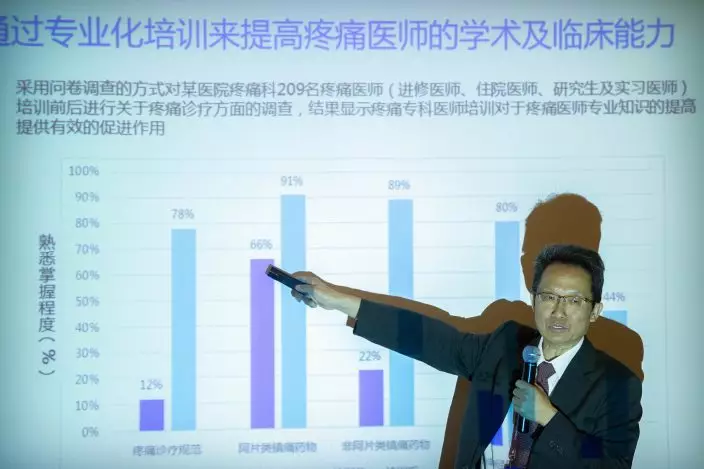
Dr. Fan Bifa, director of the pain clinic at the China-Japan Friendship Hospital in Beijing, speaks at a medical conference in Beijing, China on May 23, 2019, where he points to a chart showing the results of a survey about specialized training for pain doctors. Fan says he had never looked for scientific evidence to prove that sustained release opioids are less likely to cause addiction. (AP PhotoMark Schiefelbein)
Mundipharma aggressively pushed high doses of opioids in China, despite warnings that higher doses carry higher risks of overdose and death.
Mundipharma sales representatives said managers required them to copy patients’ private medical records without consent to better target sales, in apparent violation of Chinese law.
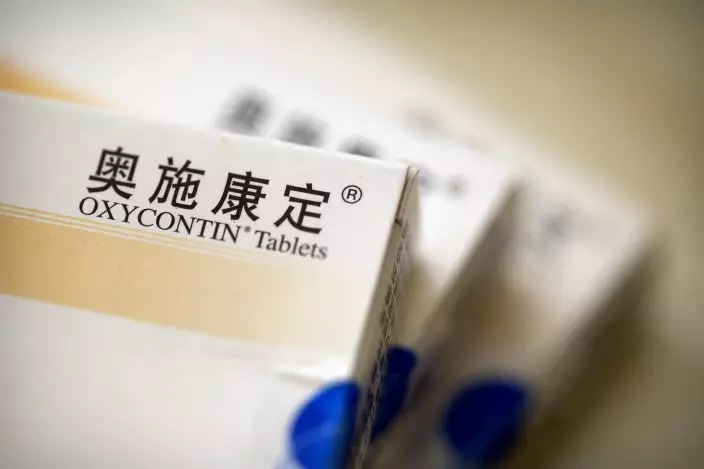
Boxes of OxyContin tablets sold in China sit on a table in southern China's Hunan province on Sept. 24, 2019. Representatives from the Sacklers' Chinese affiliate, Mundipharma, tell doctors that OxyContin is less addictive than other opioids — the same pitch that their U.S. company, Purdue Pharma, admitted was false in court more than a decade ago. (AP PhotoMark Schiefelbein)
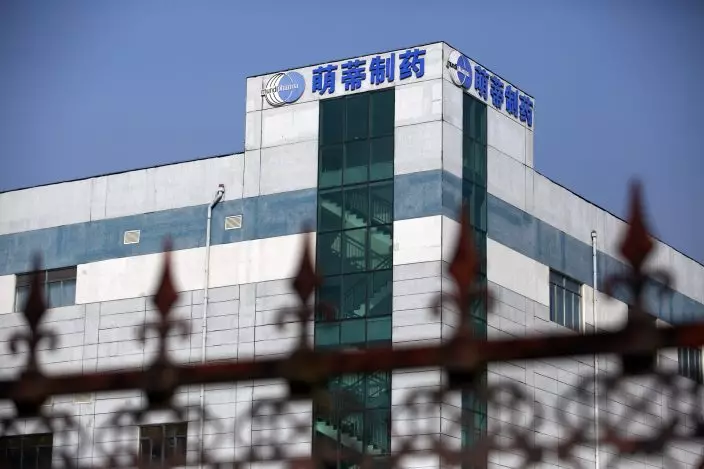
This Sept. 27, 2019 photo shows a Mundipharma facility in an industrial park on the outskirts of Beijing, China. As the Sackler's U.S. empire collapses, Mundipharma, which is also owned by the family, is using the same tactics to peddle opioids in China. (AP PhotoMark Schiefelbein)
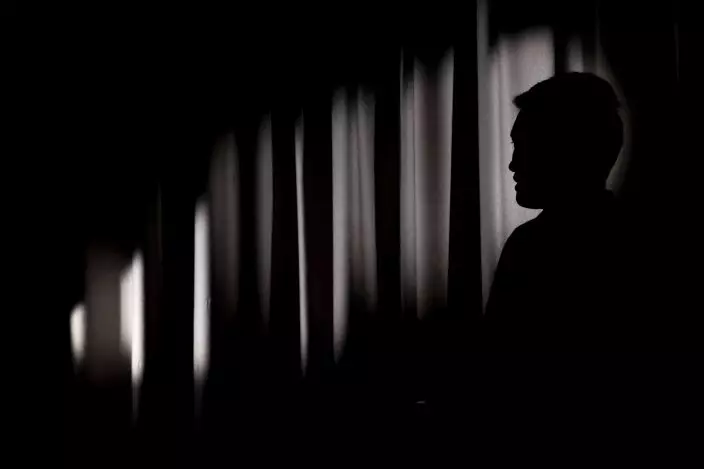
A former sales representative who spoke on condition of anonymity for fear of retribution speaks during an interview in eastern China on Sept. 18, 2019. He said he sometimes disguised himself as medical staff, putting on a white doctor's coat and lying about his identity to visit patients in the hospital. (AP PhotoNg Han Guan)
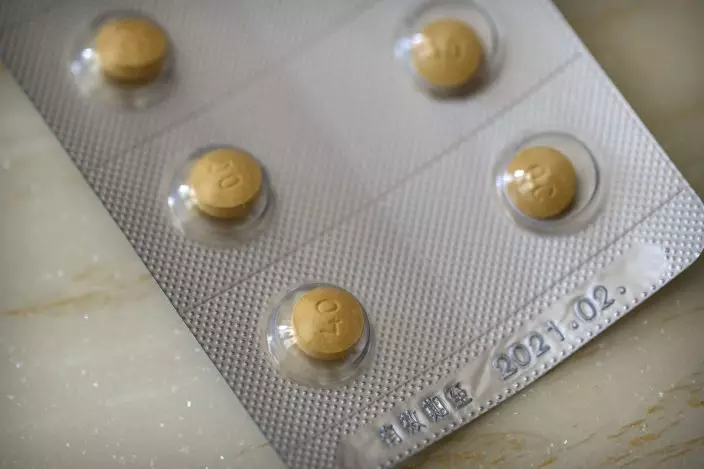
This Sept. 24, 2019 photo shows 40-milligram Oxycontin tablets sold in China in Hunan province. China fought two wars in the 19th century to beat back British ships dumping opium that fueled widespread addiction. Today, the cultural aversion to taking drugs, in Chinese, literally "sucking poison", is so strong addicts can be forced into police-run treatment centers. (AP PhotoMark Schiefelbein)
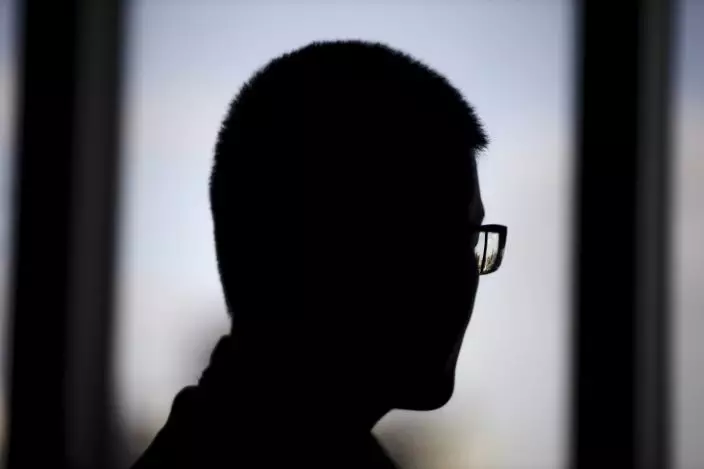
Tony Chen, a former OxyContin sales representative who spoke on condition that he only be identified by his English name, for fear of retribution, speaks during an interview in China on Sept. 19, 2019. The pressure to perform was intense. Chen and other reps said quarterly sales targets rose by as much as 30 percent. If he surpassed them, he could more than double his take home pay. If he didn't, he could lose his job. (AP PhotoNg Han Guan)
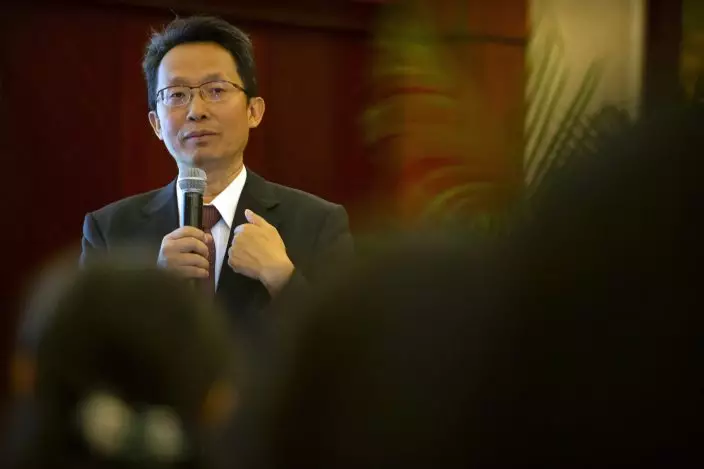
Dr. Fan Bifa, director of the pain clinic at the China-Japan Friendship Hospital in Beijing, speaks at a medical conference in Beijing, China on May 23, 2019. Fan told The Associated Press he has never taken money directly from Mundipharma. (AP PhotoMark Schiefelbein)
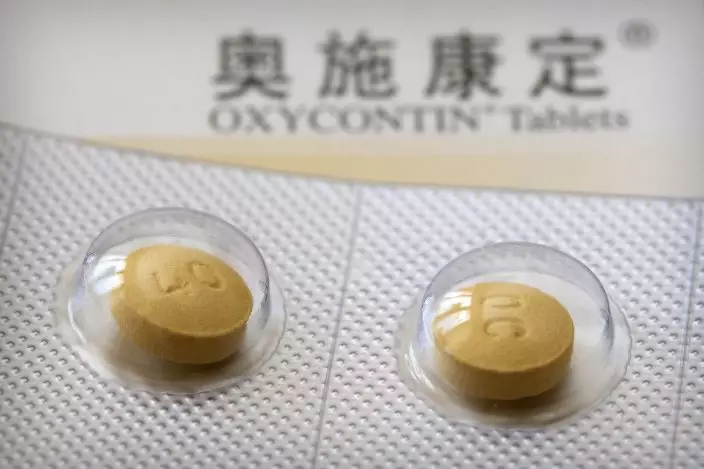
This Sept. 24, 2019 photo shows 40-milligram OxyContin tablets sold in China in Hunan province. OxyContin's U.S. FDA-approved label warns that even if taken as prescribed, the opioid carries potentially lethal risks of addiction and abuse. (AP PhotoMark Schiefelbein)
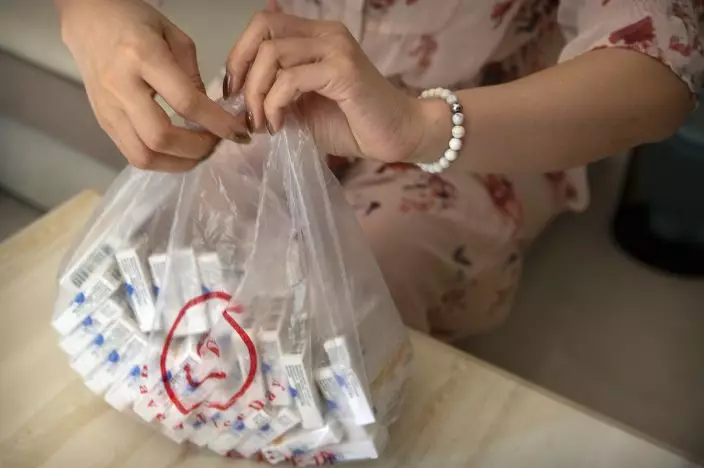
A woman holds a plastic bag of OxyContin tablets sold in China in southern China's Hunan province on Sept. 24, 2019. Representatives from the Sacklers' Chinese affiliate, Mundipharma, tell doctors that OxyContin is less addictive than other opioids — the same pitch that their U.S. company, Purdue Pharma, admitted was false in court more than a decade ago. (AP PhotoMark Schiefelbein)
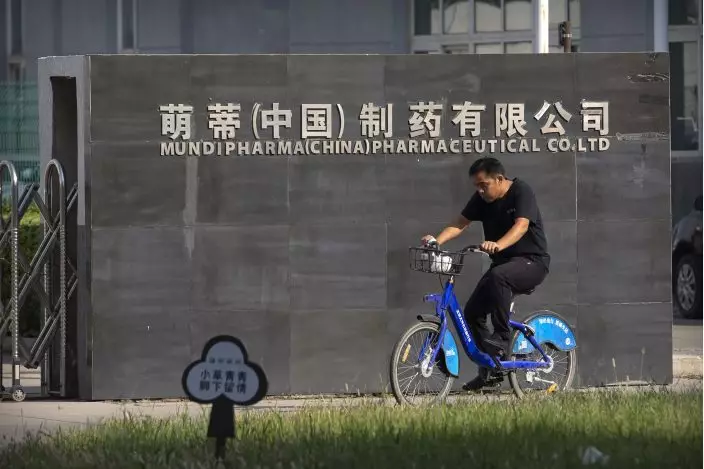
A man rides a bicycle past the entrance gate of a Mundipharma facility in an industrial park on the outskirts of Beijing, China on Sept. 27, 2019. As the Sackler's U.S. empire collapses, Mundipharma, which is also owned by the family, is using the same tactics to sell opioids in China. (AP PhotoMark Schiefelbein)


